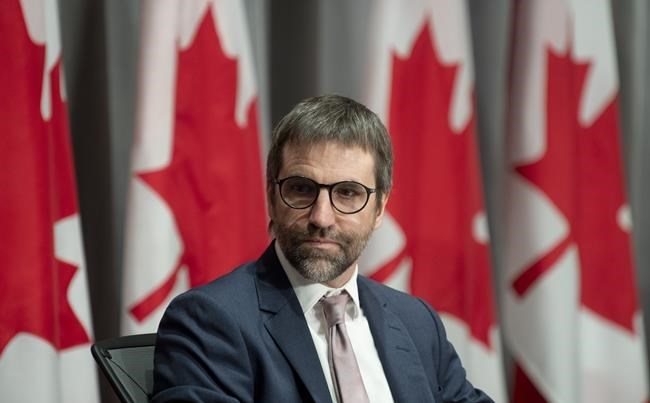OTTAWA — It's no longer sustainable for social media companies to self-police content and time for governments to step in, the head of public policy for Facebook Canada said Friday.
That's why the social media giant is welcoming ongoing work by the federal Liberal government to roll out a plan, Kevin Chan told the House of Commons heritage committee.
"Right now, it's private companies like Facebook that are deciding what is and isn't allowed on Facebook and we think that that doesn't sit well with many people and they want public rules where there is legitimate public and democratic accountability," he said.
"And so to the extent that lawmakers can agree on where that line should be drawn and then impose those lines on us, I think that would be certainly welcome."
Heritage Minister Steven Guilbeault told the committee work is underway as part of a three-pronged response to the challenges that social media platforms and other major internet-based content providers pose to the ways media in Canada has been regulated, financed and policed in the past.
One part of the response is a bill currently before the House of Commons to modernize the broadcasting regime, and a second is work to address how major internet companies are taxed, and in turn how traditional media companies are financially supported.
Then there is the issue of online hate, Guilbeault said, which has been brought to the fore during the pandemic as Canadians relied on digital communications to be connected and informed.
"Unfortunately, some internet users are also exploiting these platforms maliciously, to spread hate, racism and child pornography," he said.
"There is currently illegal content being uploaded and shared online to the detriment of Canadians and our society. This is simply unacceptable."
The coming bill will define a regulatory framework on hate speech, child pornography and content that incites people to violence, Guilbeault said.
A regulator will be established to implement the new rules and have the power to levy fines for infractions.
Both Guilbeault and Chan's appearance at committee came amid intensifying debate over the tension between free speech on social media platforms and calls for government regulation of it, especially in light of deadly riots in the U.S. Capitol earlier this month that had been co-ordinated and facilitated by content posted on social media.
Many social media platforms, for example, disabled the accounts belonging to former U.S. president Donald Trump in the aftermath of the riots, leading to allegations they were acting out of censorship, not to protect public safety.
But the two men hadn't been called before the committee to debate those points.
Rather, they were summoned by the opposition to discuss whether it was appropriate for Facebook to have asked officials in Guilbeault's department if they knew of anyone suited for a job at the social media company.
The Opposition Conservatives and NDP alleged the incident raises concerns about whether Facebook is too close to the government at a time when rules are being considered.
Chan and Guilbeault rejected that allegation, arguing the posting had been widely available in public circles and nothing untoward had happened.
The minister chastised MPs for even raising the issue, suggesting they were trying to undermine trust in the public service in a manner that undermined democracy itself.
"Canada has a world renowned public service and it's integral that we don't attack them to try and score political points," Guilbeault said.
"I mean, we saw on Jan. 6 where that can lead, just south of the border."
Chan was asked whether the foreign political interference on social media that was part of recent U.S. elections was seeping into Canadian ones.
None was reported during the 2019 campaign, Chan said, but work is underway to be on guard for the next time Canada goes to the polls, though there is no reason to believe things will be different then.
This report by The Canadian Press was first published Jan. 29, 2021.
———
Facebook funds a fellowship that supports journalism positions at The Canadian Press.
Stephanie Levitz, The Canadian Press



